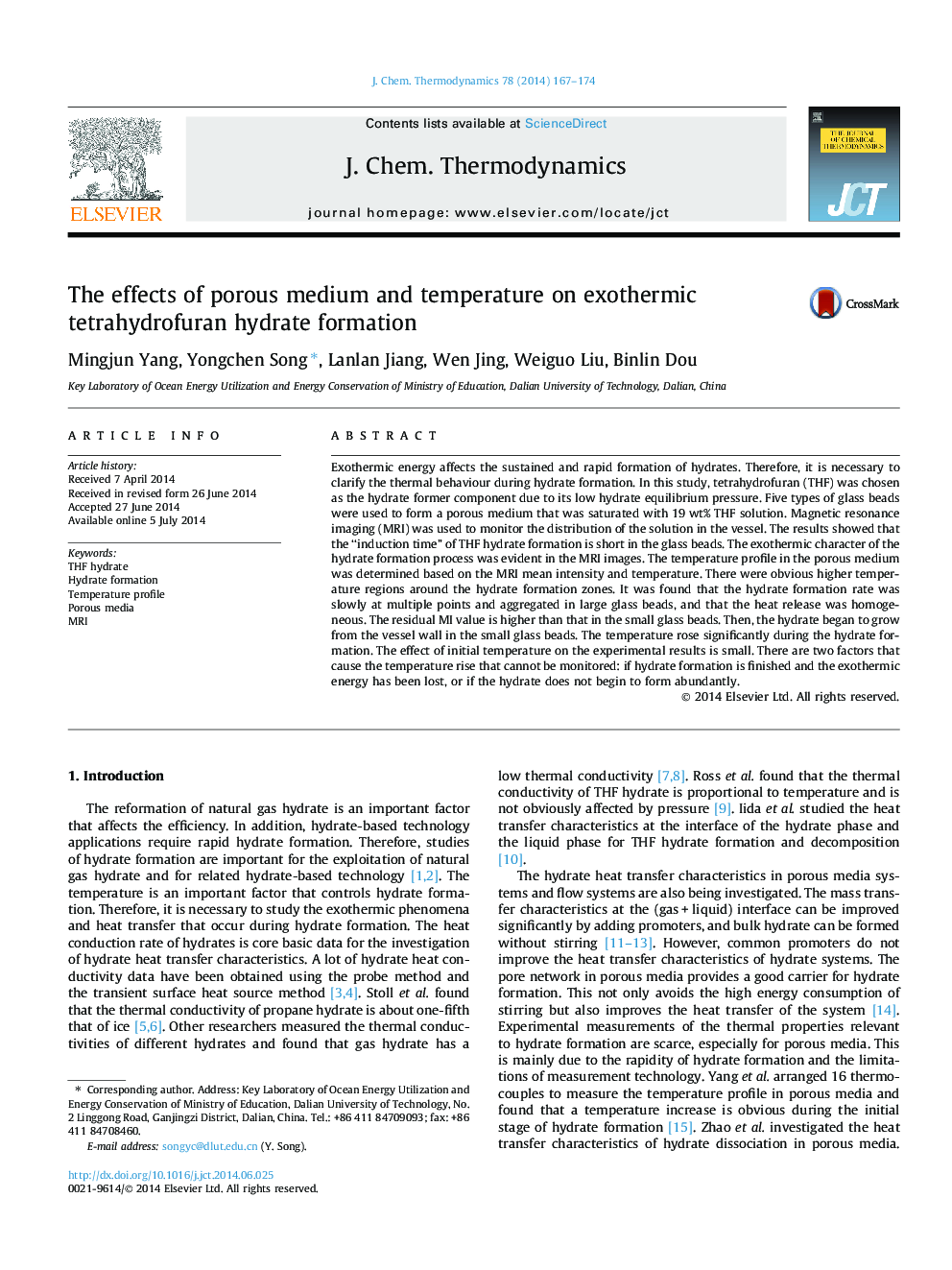| Article ID | Journal | Published Year | Pages | File Type |
|---|---|---|---|---|
| 215373 | The Journal of Chemical Thermodynamics | 2014 | 8 Pages |
•Temperature profile was obtained for THF hydrate formation in porous media.•Hydrate forms slowly and the heat release is homogeneous in large glass beads.•Exothermic character of THF hydrate formation process is evident.•The effect of initial temperature on the thermal behaviour is small.•Exothermic energy affects the sustained and rapid formation of THF hydrate.
Exothermic energy affects the sustained and rapid formation of hydrates. Therefore, it is necessary to clarify the thermal behaviour during hydrate formation. In this study, tetrahydrofuran (THF) was chosen as the hydrate former component due to its low hydrate equilibrium pressure. Five types of glass beads were used to form a porous medium that was saturated with 19 wt% THF solution. Magnetic resonance imaging (MRI) was used to monitor the distribution of the solution in the vessel. The results showed that the “induction time” of THF hydrate formation is short in the glass beads. The exothermic character of the hydrate formation process was evident in the MRI images. The temperature profile in the porous medium was determined based on the MRI mean intensity and temperature. There were obvious higher temperature regions around the hydrate formation zones. It was found that the hydrate formation rate was slowly at multiple points and aggregated in large glass beads, and that the heat release was homogeneous. The residual MI value is higher than that in the small glass beads. Then, the hydrate began to grow from the vessel wall in the small glass beads. The temperature rose significantly during the hydrate formation. The effect of initial temperature on the experimental results is small. There are two factors that cause the temperature rise that cannot be monitored: if hydrate formation is finished and the exothermic energy has been lost, or if the hydrate does not begin to form abundantly.
